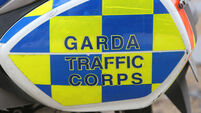RTB will pursue 1,500 landlords who accept HAP payments on unregistered tenancies

TDs and senators on the Oireachtas housing committee will hear on Tuesday about the RTB's campaign to invite landlords to comply with HAP registration, and to prosecute those who do not comply. Stock picture: Pexels
The Residential Tenancies Board has found that 1,500 landlords were claiming the Housing Assistance Payment (HAP) without registering their tenancy.
The new director of the RTB, Rosemary Steen, is due to tell TDs and senators on Tuesday that work is ongoing to improve the detection of unregistered tenancies.










